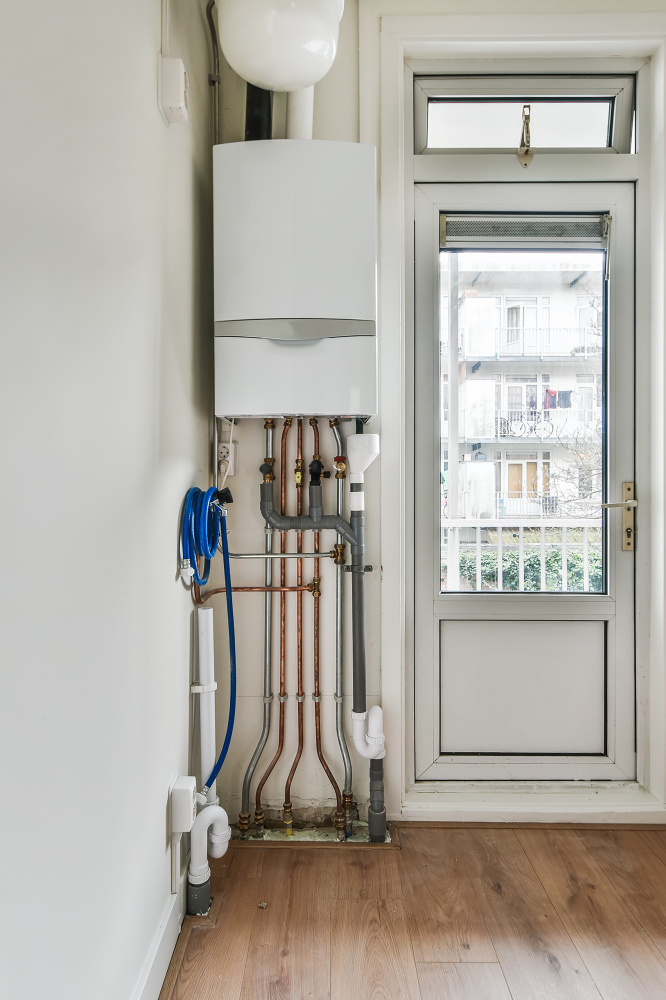
Efficient Installs
Our team specializes in precise water heater installations, guaranteeing consistent and dependable hot water.
Tailored Solutions
We assess your specific needs to provide the most suitable water heater option, be it tankless, electric, or gas models.
Brentwood Star Plumbing: Your Water Heater Specialists in Brentwood, TN
Water Heater Repair and Replacement Services
At Brentwood Star Plumbing, we specialize in comprehensive water heater services, covering both traditional tank and modern tankless models. Our skilled team is adept at diagnosing your water heater issues and providing swift, effective solutions. Should you need a new installation, we offer top-quality replacements at competitive prices, ensuring your Brentwood home stays warm and comfortable. For all your water heater repair or installation needs in Brentwood, TN, we are your go-to experts!
Signs Your Water Heater Needs a Professional's Touch
It's important to keep a close eye on your water heater to prevent small issues from becoming major problems.
Watch out for these signs that indicate a need for professional repair or replacement:
- Age: Tank water heaters typically last about 10 years. If yours is approaching or exceeding this age and causing trouble, it might be time for a new one.
- Noises: Strange sounds like banging or rumbling from your heater could mean sediment buildup, which reduces efficiency and can lead to damage.
- Odor: A rotten egg smell from your hot water could indicate bacterial contamination, requiring a thorough tank cleaning.
- Rust and Corrosion: Rust-colored water often signals tank corrosion, suggesting the need for replacement.
- Insufficient Heating: If adjusting the thermostat doesn't help, the heating element or thermostat might be faulty.
Noticing these issues? Contact Brentwood Star Plumbing in Brentwood, TN, for expert water heater maintenance and replacement services.
Services for All Water Heater Types
Our water heater services include:
- Comprehensive water heater repairs
- Installation of gas & electric water heaters
- Advanced tankless water heater solutions
- Modern heating solutions
Our Experienced Team
Our seasoned water heater specialists and plumbers bring extensive expertise to every project, catering to the unique architectural style and plumbing systems of Brentwood homes and businesses.
We only employ skilled, licensed, and insured technicians who participate in ongoing training to provide unparalleled service quality.
We guarantee complete satisfaction with our professional, prompt, and efficient water heater services.
Ready to Serve You
Our team is available 24/7 to address your water heater needs promptly.
At Brentwood Star Plumbing, we are committed to:
- Continual improvement and innovation
- Building strong relationships with our clients and local contractors
- Transparent pricing and clear communication
- Ensuring absolute customer satisfaction
- Offering a free residential plumbing inspection with every service
Available anytime, including late nights and weekends, our water heater technicians are always ready to provide rapid service to residential and commercial clients in Brentwood, TN, and nearby areas.
We're dedicated to responsiveness and professionalism. When you call, our experienced technicians will be dispatched promptly to address your water heater concerns.
Brentwood Star Plumbing is fully licensed and insured, ensuring reliable and trustworthy service for all your water heater needs.
Emergency Water Heater Services
For those unexpected water heater emergencies, our highly trained plumbers are prepared to provide urgent repairs at any time, including holidays and weekends. Whether it’s a leak, corrosion issue, or any other emergency, we have you covered with prompt and effective solutions.
Contact Brentwood Star Plumbing for Top-Notch Water Heater Services in Brentwood, TN
Known for timely, accurate, and friendly service, Brentwood Star Plumbing is your first choice for water heater repairs and installations in Brentwood, TN. Facing water heater issues? Don’t hesitate to call us at (615) 239-1266 or use our easy online form to schedule your appointment. We're committed to your complete satisfaction with every service we provide. Get in touch with us today!

